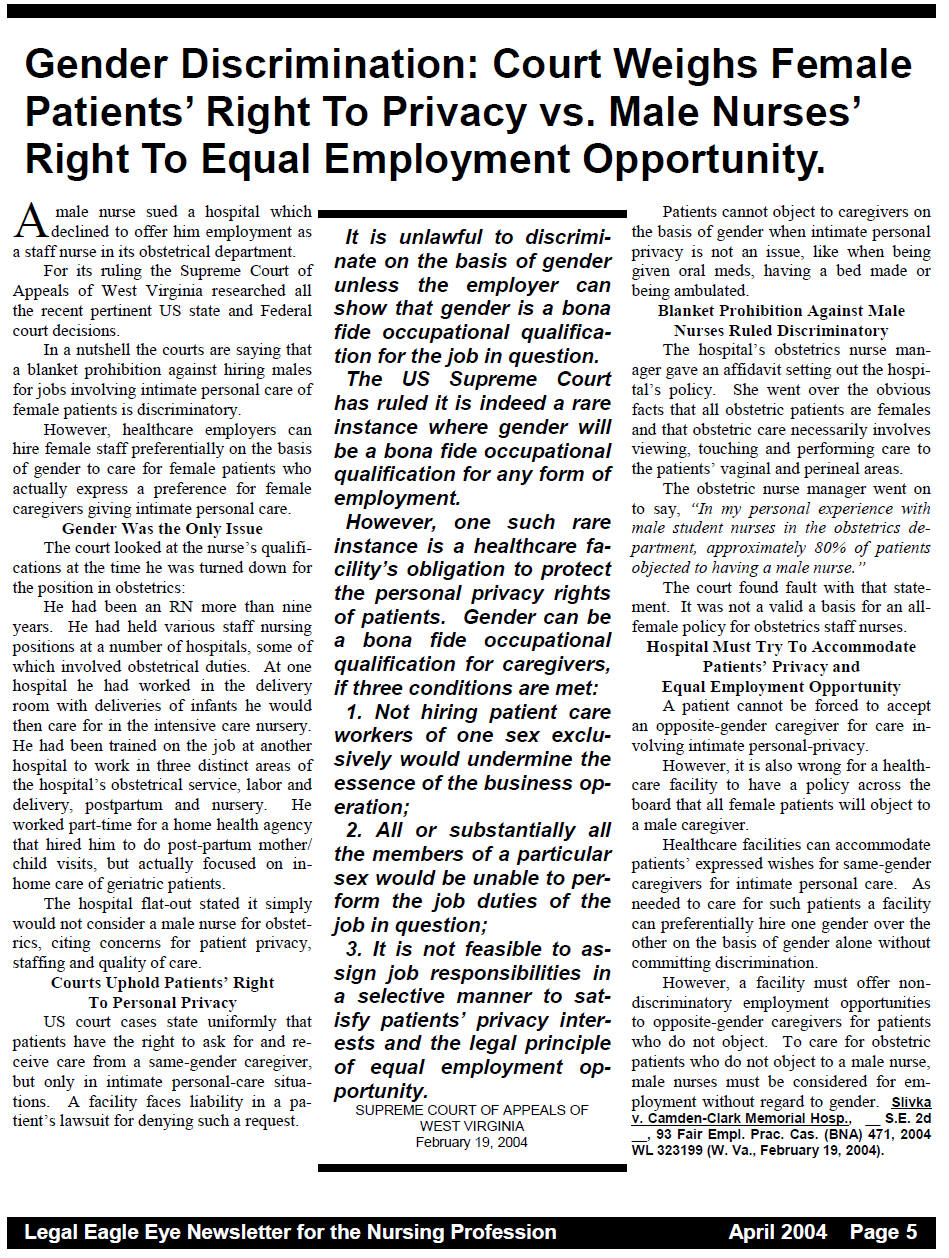
|
Click here for a complimentary copy of the current issue of Legal Eagle Eye Newsletter for the Nursing Profession |

Same-Sex Caregivers: Court Upholds Male Aide's Gender Discrimination Claim
Quick Summary: It is unlawful for a healthcare employer to have a hard and fast policy saying that female patients automatically get only female caregivers, while both males and females are assigned to care for male patients.
A healthcare employer can honor a specific request from a patient for a same-sex caregiver, without violating the laws against gender discrimination, but only if the care to be given involves issues of intimate personal privacy, such as a patient’s preference not to have an opposite-sex caregiver assisting with toiletting or cleansing the patient’s perineal area.
Still, there must be a request from the patient for a same-sex caregiver, rather than a blanket policy excluding opposite-sex caregivers from giving even the most personal care to patients.
If the patient's personal privacy is not an issue, honoring a patient's request for a same-sex caregiver can lead to legitimate charges of gender discrimination.
SUPERIOR COURT OF NEW JERSEY, APPELLATE DIVISION, 1996.The Superior Court of New Jersey, Appellate Division, recently upheld a male home health aide’s gender discrimination lawsuit against his former employer’s policy of allowing both male and female aides to care for male clients, while only female aides were assigned to care for female clients. The court ruled that an employer’s policy of completely excluding males from caring for females is unlawful gender discrimination.
A healthcare employer is permitted to a limited extent to honor specific requests from patients of either sex for same-sex caregivers. These requests may be honored if, and only if, the care to be given is of a sensitive personal nature. The court gave examples where a patient’s request for a same-sex caregiver can be honored: assisting the patient to the commode, cleansing the patient’s perineal area and caring for a urinary catheter.
Although not stated in so many words, the court probably would not approve honoring a patient’s request for a same-sex caregiver to pass medications, change a dressing, hang an IV, assist with ambulation, or other patient care which does not involve intimate personal privacy.
The court was particularly offended by the home health agency’s policy that male clients were assigned male or female caregivers, with the clients having no apparent choice, while female caregivers only were automatically assumed to be appropriate for female clients.
Spragg vs. Care, 679 A. 2d 685 (N.J. App., 1996).